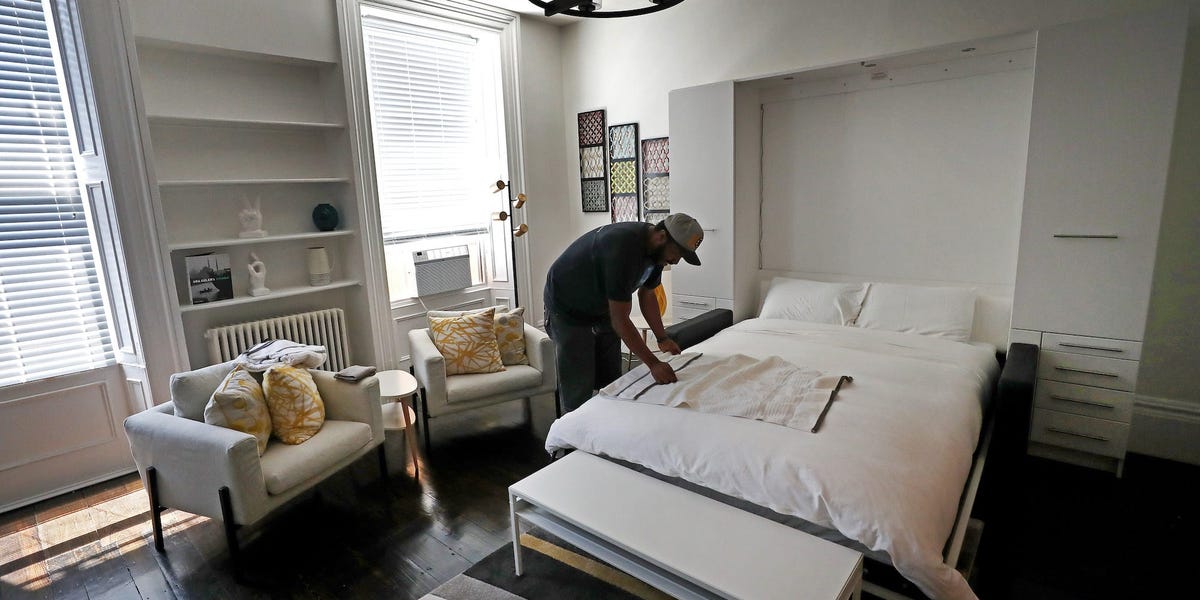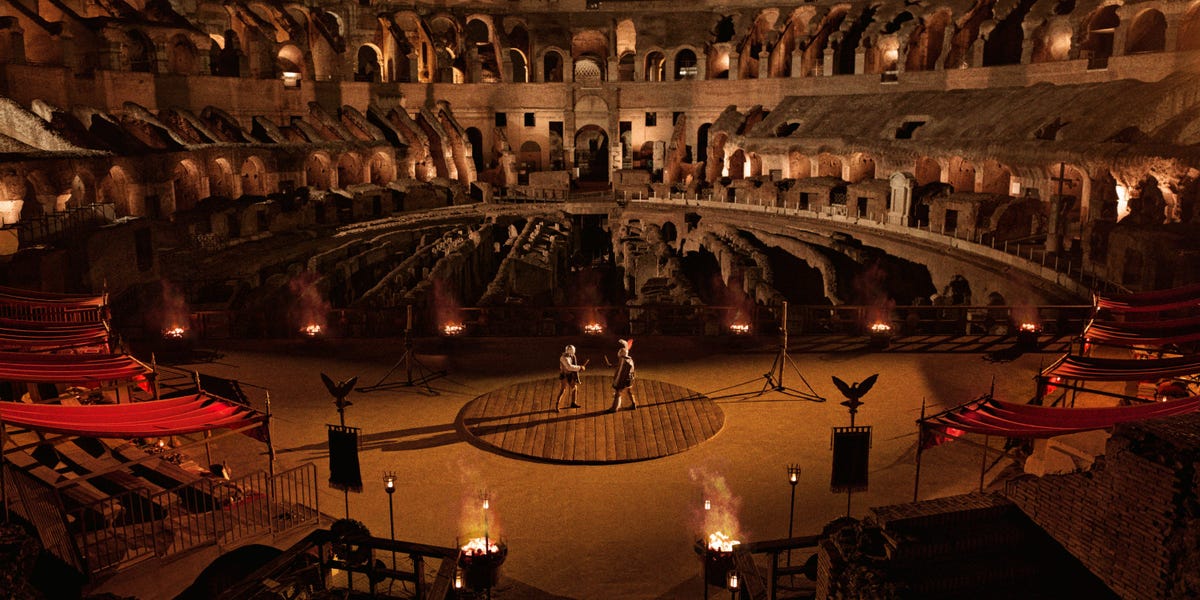- Over 85% of short-term rentals in the US charge a cleaning fee, according to industry analysts AirDNA.
- Guests, however, have aired their frustrations over cleaning fees online over the years, calling the charges over-the-top.
- Some hosts said they need to charge cleaning fees to stay in business, while others say they don’t believe in fees or chores.
A lull in conversation at your holiday gathering? Bring up Airbnb cleaning fees.
They’re divisive: Some travelers feel that the fees— not to mention lists of household chores to be completed before checkout — are over the top. Short-term-rental owners and property managers, however, counter that they must pass along the cost of their cleaners to guests in order to stay in business.
Guests have taken to TikTok and Twitter to air their frustrations over the charges. In one viral video from February 2022, TikTok user @Melworeit panned the fees as not only obnoxious but also a reason to book hotels over short-term rentals.
“If I’m paying $229 a night to stay somewhere plus a $125 cleaning fee, I’m not doing any laundry,” she said.
The complaints prompted Airbnb to unveil an “all-in” pricing tool, which allows users to browse listings with no surprises at checkout. While searching, users who click a toggle see one price that includes the nightly rate, cleaning fees, and local fees bundled together. In May, the company asked users what improvements they wanted to see; one of the top concerns was cleaning fees, according to a third-quarter company update. In 2023, over 260,000 Airbnb listings lowered or removed their cleaning fees, the update said.
Despite the outrage, the majority — 85% — of short-term rentals in the US charge cleaning fees, according to analytics site AirDNA. In the United Kingdom, only about 52% of short-term rentals levy cleaning fees.
Are you a traveler or a short-term-rental owner with an opinion on cleaning fees? Send us an email at halberts@businessinsider.com.
Hosts are torn over how to treat cleaning fees
Some hosts defend the cleaning fees they charge, saying it’s necessary to run their businesses.
Oregon host Michelle Burson told Business Insider earlier this year that it would be impossible for just one person to clean her 4,000-square-foot property in the few hours between a morning checkout and afternoon check-in. The $300 cleaning fee guests pay per stay goes toward employing two cleaners to get the job done.
Likewise, upstate New York host Dennis Shirshikov first attempted to clean his 2,500-square-foot, five-bedroom property by himself, but quickly realized he needed professional help. Now the fee can be as high as $400 per stay.
Hawaii host Kayla Laatz told BI the cleaning fee is necessary to provide a decent living wage to her cleaners on the expensive island of Kauai.
“I feel like in order for us to receive excellent service, we’re happy to pay good people to do this job,” she said.
Meanwhile, other hosts see travelers’ ongoing frustrations as an opportunity: They don’t charge cleaning fees or pass down checkout-chore lists — and sometimes tout it in their listings.
In Jersey City, New Jersey, Christina Kochis believes her low-key approach to hosting wins her one-bedroom apartment, a quick train ride from New York City, bookings from guests looking for a no-fuss stay. As a traveler herself in the past, she said she was turned off by requests to take out the trash and wipe down counters.
“I don’t want people to stay here to feel like they have to do that,” she told BI in November. “I want them to be able to kind of wake up in the morning and be on their way.”
Some hosts bake the cleaning-fee cost into their nightly rates.
Utah host Jon Edwards eliminated cleaning fees on his condo, but also raised his nightly rate from $70 to $100. He still pays his cleaners the same amount — $80 for each turnover — but said shifting the costs away from a separate cleaning fee and into a more familiar hotel-like pricing, where everything is included, has helped lure more travelers to stay.
It’s “the way the human mind works,” Edwards told Business Insider.








